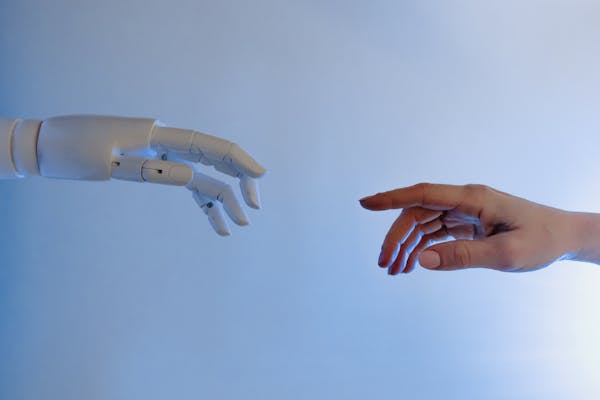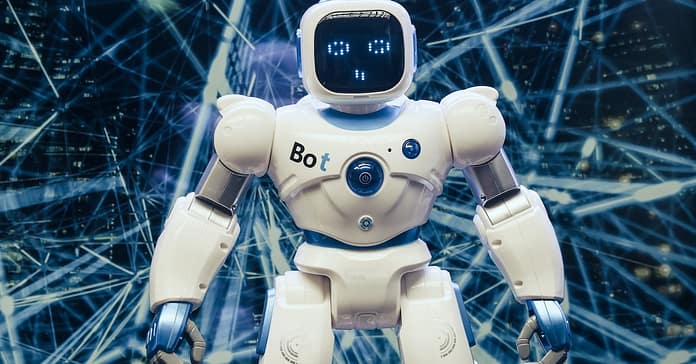The Ultimate Guide to, How Artificial Intelligence Is Changing The Workplace and How Artificial Intelligence Transforming the World
The Beginning of AI: According to Wikipedia, In 1956 – John McCarthy coined the term ‘artificial intelligence’ and had the first AI conference. 1969 – Shakey was the first general-purpose mobile robot built. It can now do things with a purpose vs. just a list of instructions. The term “Artificial Intelligence” was chosen by McCarthy.
AI in the Workplace: How it is Transforming the Way We Work
AI algorithms are computer programs designed to perform specific tasks or make decisions based on data inputs. In a workplace setting, these algorithms can automate specific processes, improve decision-making, and increase efficiency.
Effective AI Algorithm Management – Key Strategies for Success in the Workplace
Effective management of AI algorithms is important to ensure they function correctly and deliver the desired results. Some key strategies for success in this area may include:
- Clearly defining the goals and objectives for the AI algorithms: This helps ensure that the algorithms are aligned with the overall strategy and goals of the organization.
- Regularly monitoring and evaluating the performance of the algorithms: This can help identify any issues or problems with the algorithms and allow for timely corrections or adjustments.
- Ensuring that the algorithms are transparent and explainable: This helps build trust in the algorithms and can help identify any potential biases or errors in the data inputs.
- Providing ongoing training and support for employees using the algorithms helps ensure that the algorithms are being used effectively and efficiently.
The Impact of Artificial Intelligence on Employee Rights and Protections

Artificial intelligence (AI) is a rapidly advancing technology transforming many aspects of modern life, including the workplace. While AI can bring many benefits to organizations, such as increased efficiency and productivity, it also can impact employee rights and protections.
Some of how AI may affect employee rights and protections include:
Job Displacement: AI and automation can potentially replace certain jobs, leading to job loss and reduced employment opportunities for certain workers.
Changes To The Nature Of Work: AI may change the tasks and responsibilities of certain jobs, potentially leading to new skill requirements and the need for employee retraining.
Privacy Concerns: The use of AI in the workplace may raise concerns about collecting, using, and protecting employee data.
Discrimination And Bias: If AI algorithms are educated on biased data, they may be biased, resulting in discriminatory outcomes for employees.
It is essential for organizations to consider the potential impacts of AI on employee rights and protections and to take steps to address any potential issues. This may include developing policies and procedures for the ethical use of AI, providing employee training and support, and regularly reviewing and monitoring the impact of AI on the workforce.
How Artificial Intelligence Is Changing The Workplace FAQs
How is artificial intelligence being used in the workplace?
Artificial intelligence (AI) is used in the workplace to automate tasks, improve decision-making, predict outcomes, improve customer service, and personalize products and services. AI can transform many aspects of the modern workplace and create new business opportunities. Organizations need to consider how they can use AI in a way that is ethical and benefits both the organization and its employees.
How does artificial intelligence work?
Artificial intelligence (AI) refers to the ability of a computer or machine to perform tasks that would normally require human intelligence, such as learning, problem-solving, and decision-making. AI systems use algorithms and data to make decisions and perform tasks based on patterns and rules they learned from previous experience. There are various varieties of AI, including strong or general AI, which can carry out any intellectual task that a human can, and limited or weak AI, which is made to execute a single task.
Can artificial intelligence have emotions?
Artificial intelligence (AI) systems are not capable of experiencing emotions in the same way that humans do. While AI systems can recognize and respond to specific emotional cues, such as facial expressions or tone of voice, they do not experience emotions. This is because emotions are subjective experiences that are uniquely human and are driven by complex cognitive and physiological processes that are not present in AI systems.
That being said, some AI systems are designed to simulate or mimic certain emotional behaviors to improve human interactions. For example, a chatbot might use language and tone to convey empathy or concern when interacting with a customer. However, it is essential to understand that these are just simulations of emotions, and the AI system is not experiencing emotions.
Read Also: Top 15 Emerging Technology Trends To Watch in 2023 and Beyond


[…] ChatGPT offers many benefits, including improved efficiency, reduced human effort, and increased accuracy. However, it also has its limitations. One of the main limitations is that it is not yet advanced enough to understand context and nuance as well as a human. Additionally, it is not yet able to generate creative or original content. Read more about How Artificial Intelligence Is Changing The Workplace […]
[…] that’s changing numerous facets of contemporary existence, such as the place of work How Artificial Intelligence Is Changing The Workplace. Whilst AI may bring benefits in order to businesses, for example elevated effectiveness as well as […]